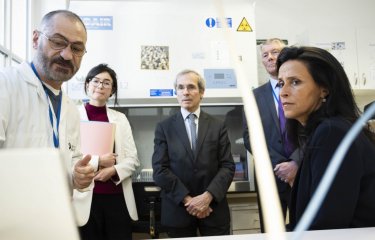“What is it about the 21st century that makes us so particularly vulnerable to epidemics?” This is the question asked by the documentary "Unseen Enemy", broadcast in France on ARTE on Tuesday April 4, 2017 at 9:55pm. Moving across the globe, the film's director Janet Tobias met with doctors and researchers, including at the Institut Pasteur. Each one of them had stepped into the horror of an epidemic and emerged deeply changed.
Population growth, mass urbanization, deforestation, climate change and the rise in travel have dramatically increased the risk that communicable diseases will spread, and new ones emerge. Moreover, viruses are moving from animals to humans, and then spreading more broadly.
Starting from this observation, the documentary Unseen Enemy explains why, in the 21st century, we are experiencing a rash of diseases that were once only outbreaks but have now become full-blown epidemics. The film illustrates this greater risk by interweaving case studies of three epidemics: Ebola, Influenza, and Zika.
Dr. Arnaud Tarantola, now working as the Head of the Epidemiology Unit at the Institut Pasteur in New Caledonia, was interviewed for this documentary. From 2011 to 2016, while he was the Head of the Epidemiology and Public Health Department at the Institut Pasteur in Cambodia in Phnom Penh, he led field investigations and epidemiological studies on avian influenza, working alongside local communities and healthcare workers to provide expertise to national authorities.
See the movie trailer below:
An overview of the Institut Pasteur International Network:





